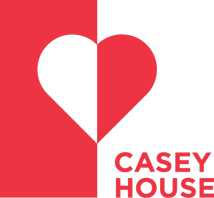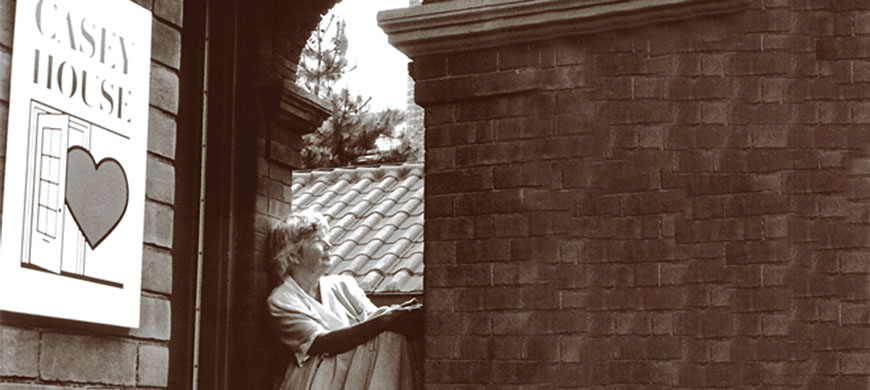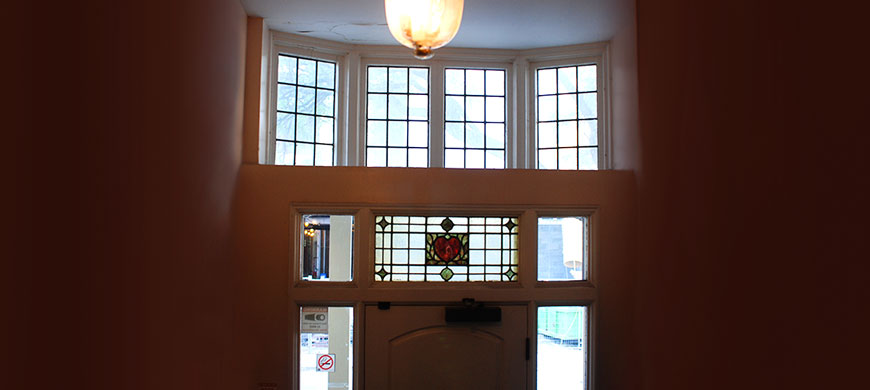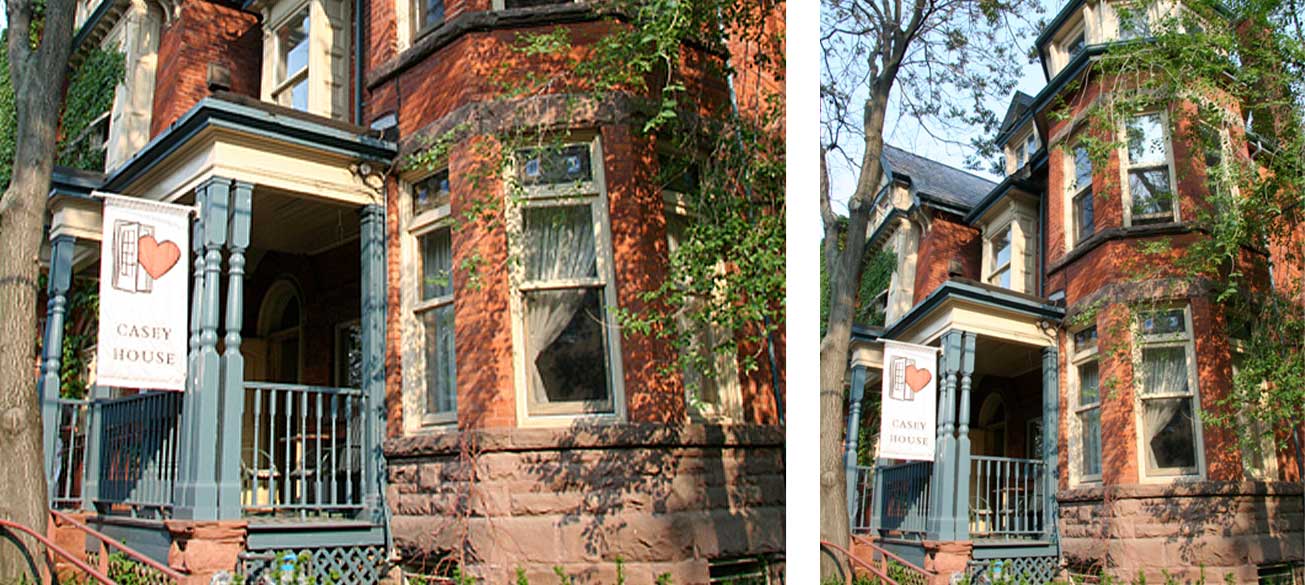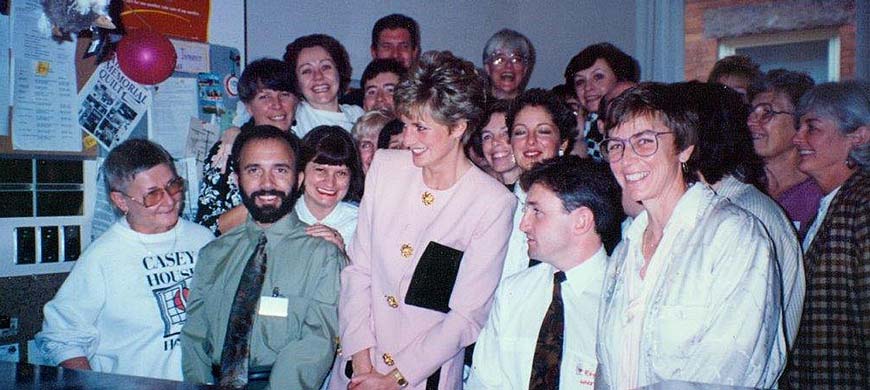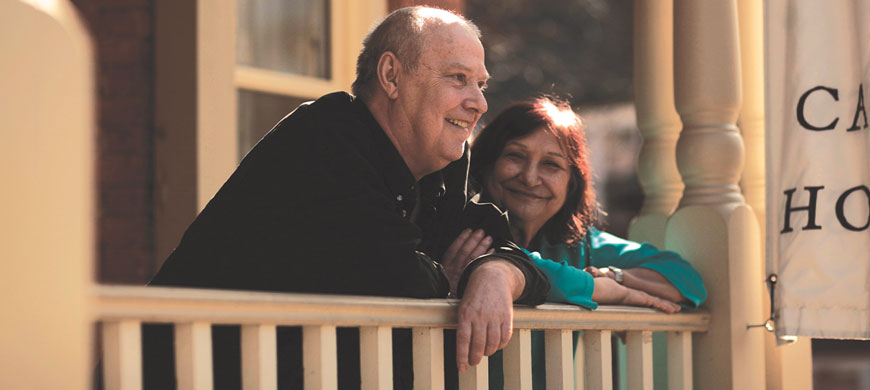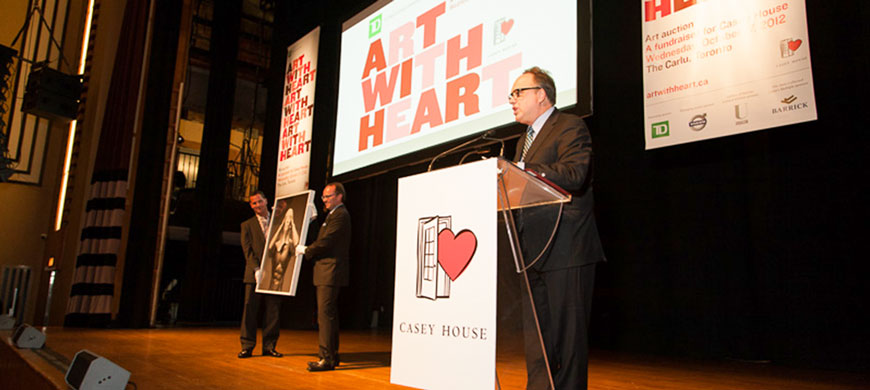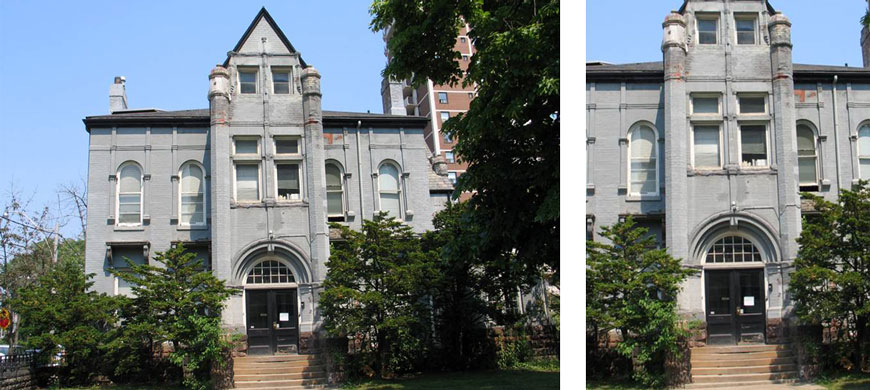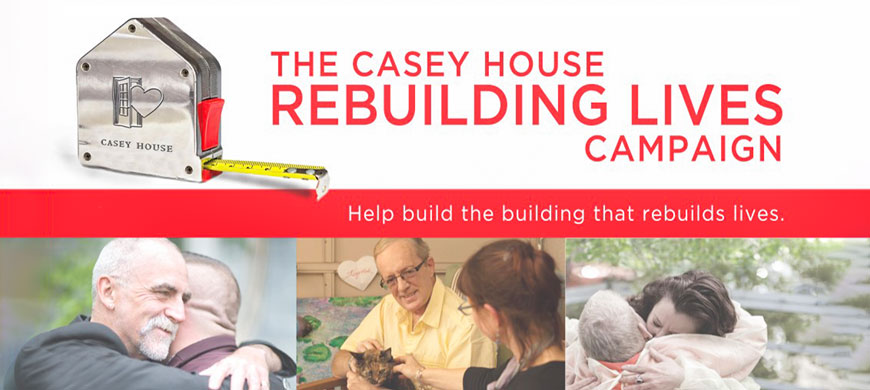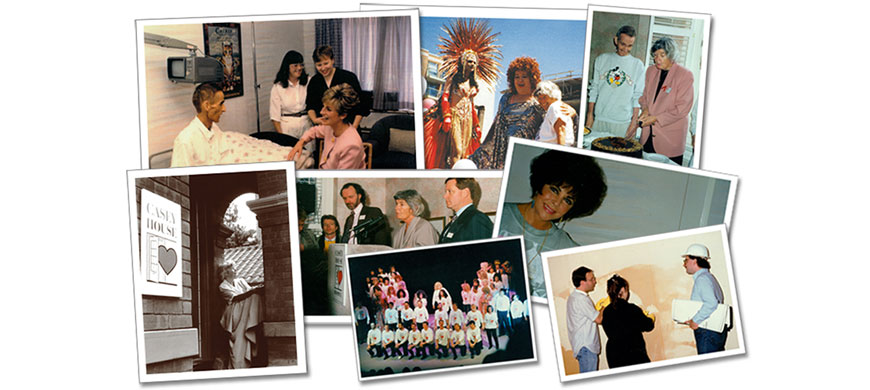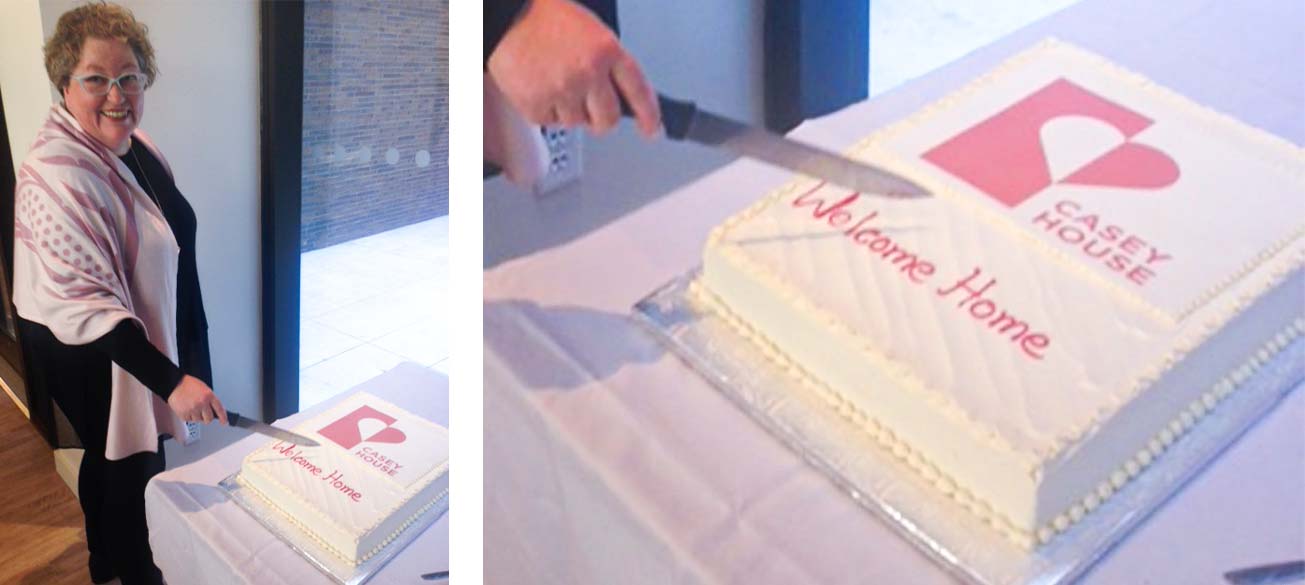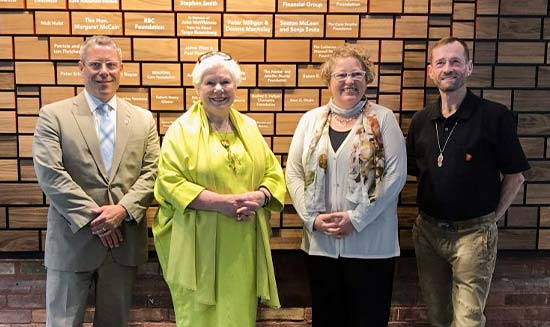Opened in 1988 during the height of the HIV/AIDS epidemic, Casey House has a long and proud history in Toronto. Founded by a group of intrepid volunteers led by journalist and activist June Callwood, Casey House was Canada’s first stand-alone treatment facility for people living with HIV/AIDS, and Ontario’s first free-standing hospice.
At the time of our founding, the average life expectancy for people living with AIDS was nine months. Many people were dying alone, cut off from the support of family, friends, and the medical community because of stigma. Guided by the strong conviction that when a person is dying, they should do so according to their own wishes, surrounded by loving caregivers, June Callwood’s goal was to create a place of medical excellence in HIV/AIDS treatment and, most importantly, a place of love and compassion. When the first client arrived at our front door he was greeted with a hug – it was the first time he’d been touched in months.
Our founders believed that everyone deserved to be cared for with dignity and compassion. They created new approaches to palliative care, and played a leading role in both end-of-life care and HIV/AIDS health care, delivered in a welcoming and homelike environment.
“We wanted Casey House to be a place where people who were dying would feel loved, and get hugged.” – Margaret McBurney, co-Founder of Casey House
Over the years Casey House evolved from a hospice to a specialty hospital, providing care and support for people living with HIV/AIDS. Today, Casey House remains a warm and welcoming place, where we provide compassionate, judgment-free and socially-just health care.
